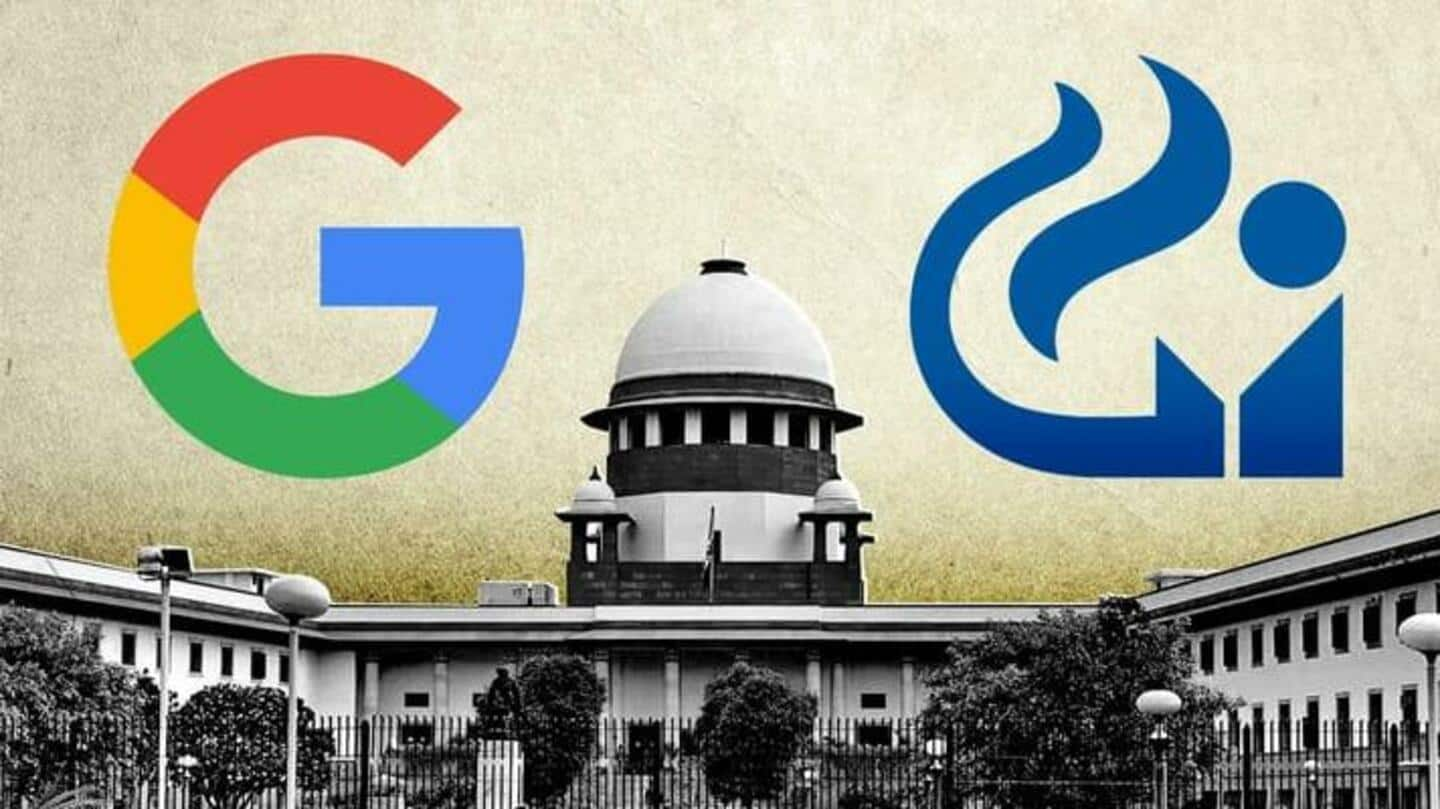
Google challenges CCI's Android antitrust ruling in the Supreme Court
What's the story
Google's battle against the Competition Commission of India (CCI) has reached the country's apex court. The tech giant has challenged the competition watchdog's antitrust ruling in the Supreme Court of India. Per court records seen by Reuters, the challenge was filed on Saturday. Last week, the National Company Law Appellate Tribunal (NCLAT) denied Google's plea for an interim stay on CCI's order.
Context
Why does this story matter?
With only a few days left for the CCI order to come into force, Google is in a hurry to get some respite. The Supreme Court is its last resort. Considering the sweeping nature of the order, the company must stop it from being implemented. If not, Google is at risk of losing its grip over the Android ecosystem.
Supreme Court
NCLAT rejected Google's plea for an interim stay
Google's decision to approach the Supreme Court came after the NCLAT rejected its request for an interim stay citing the company's delay in approaching the tribunal. The tribunal also directed Google to deposit 10% of the penalty imposed by CCI. The company had argued that implementing the competition watchdog's directives will hurt its long-standing Android business model and hurt consumer interests.
CCI order
CCI ordered Google to pay Rs. 1,336.7 crore
In October last year, CCI fined Google Rs. 1,336.7 crore for its anti-competitive practices related to the Android ecosystem. The regulator also imposed some stringent non-monetary sanctions on the tech giant after the investigation that lasted for over three years. Among others, the competition watchdog ordered Google to not force original equipment manufacturers (OEMs) to pre-install its apps.
Copy and paste
Google alleges that CCI plagiarized a European competition order
In the Supreme Court, Google is expected to argue that the CCI order violated natural justice, as the regulator was both the complainant and investigator. The company will try to prove that the investigation wasn't impartial or balanced and that CCI acted with a vendetta. It might also contend that CCI plagiarized an order from competition proceedings in the European Union.